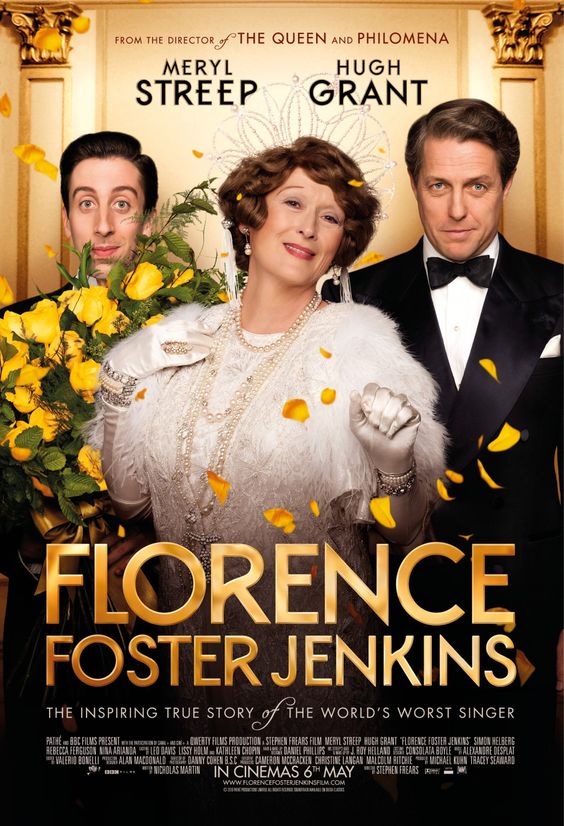 Near the start of the film, we find Florence and her husband St Clair taking in a performance at Carnegie Hall in 1944. They watch a young woman singing opera. Florence weeps at the beauty of the singing. It’s clear at this moment that she can tell good singing from bad singing, and yet, throughout the rest of the film, she carries on as if her own singing merely needs just a bit of polishing to be perfect.
Near the start of the film, we find Florence and her husband St Clair taking in a performance at Carnegie Hall in 1944. They watch a young woman singing opera. Florence weeps at the beauty of the singing. It’s clear at this moment that she can tell good singing from bad singing, and yet, throughout the rest of the film, she carries on as if her own singing merely needs just a bit of polishing to be perfect.
Her singing is remarkably bad. But what she lacks in talent she more than makes up for in wealth. Her husband tells her how great she is. Her new pianist Cosmé McMoon and her voice coach also tell her that she has never sounded better and her gift is rare and special. True enough, and she pays them well for their support.
She appeared to be a true music fan who ran her own little music society. She put on shows where she sang and her husband, a failed actor, gave recitations from a number of the plays he performed in. It seemed that Florence actually had a small fan base who enjoyed her music. The base grows larger when she records a song and gives the record to a local radio station. They all think she was singing badly on purpose.
Meryl Streep, Hugh Grant, and Simon Helberg get the bulk of the screen time as Florence, St Clair, and Cosmé. They all do great work here. Meryl does an amazing job singing in the bizarre style of Florence and made me believe that she really did think she was a great singer. Hugh is suave and cool as the rich woman’s arm candy, who seems to really love Florence, even though he lives across town with another woman. Simon, the Big Bang Theory’s Wolowitz, puts in a good performance as the nervous and jittery accompanist.
I laughed and I cried. I liked Florene Foster Jenkins.
- Starfield – A Few Months In - December 23, 2023
- Still Just A Geek by Wil Wheaton - November 1, 2022
- Starfield First Impressions of Gameplay Reveal - June 13, 2022